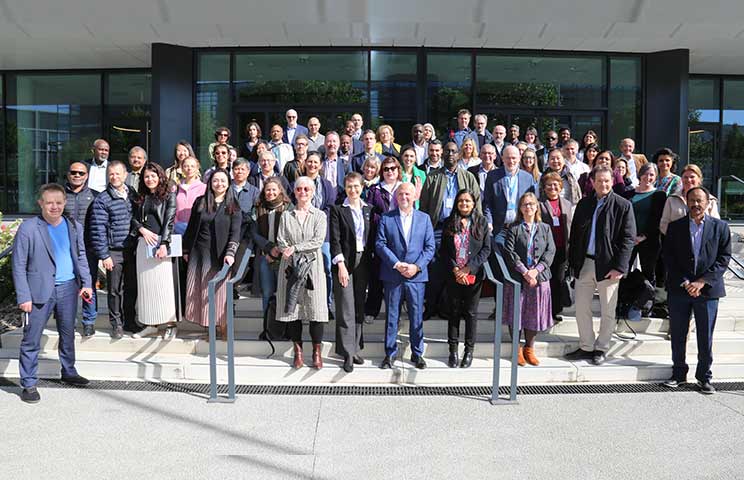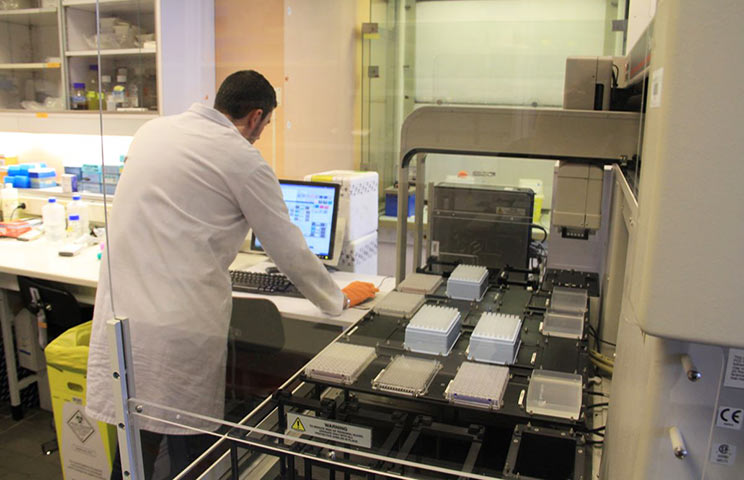More
8 July 2022
An entropic safety catch controls hepatitis C virus entry and antibody resistance
Scientists from the International Agency for Research on Cancer (IARC), in collaboration with the University of Glasgow Centre for Virus Research (Scotland), the University of Cambridge, the Institute of Cancer Research, University College London (all in England), and other partners, have demonstrated how hepatitis C virus (HCV) evades antibodies and have provided new evidence on the mechanism that HCV uses to enter cells. These results were published in the journal eLife.
The study used cell culture adaptation to decipher how HCV might improve its ability to enter and infect cells in the absence or presence of antibodies. Using a series of diverse virology and computational methods, as well as molecular dynamics simulations for conformational mobility, the researchers showed that hypervariable region 1 (HVR1) acts as a “safety catch” that regulates entry.
The complex mechanism used by HCV to enter cells has long been an area of focus for both fundamental virologists and groups interested in generating vaccines. The molecular mechanism of entry remains largely undefined and presents a challenge both in the understanding of fundamental molecular aspects of HCV and in the potential design of new therapeutics beyond the current direct-acting antivirals.
This study provides new evidence on the mechanism by which HCV, one of the main causes of liver cancer worldwide, evades immunity and enters cells.
Stejskal L, Kalemera MD, Lewis CB, Palor M, Walker L, Daviter T, et al.
An entropic safety catch controls hepatitis C virus entry and antibody resistance
Elife, Published online 7 July 2022;
https://doi.org/10.7554/eLife.71854
Other news

IARC hosts WHO UCN team
The International Agency for Research on Cancer (IARC) hosted senior personnel of the World Healt...
15.04.2024
Read more

Advisory Group recommendations on priorities for the IARC Monographs
The results of the recent meeting of the Advisory Group to Recommend Priorities for the IARC Mono...
12.04.2024
Read more

IARC Biobank obtains GIS IBiSA label
The biobank of the International Agency for Research on Cancer (IARC) has been granted one of six...
10.04.2024
Read more